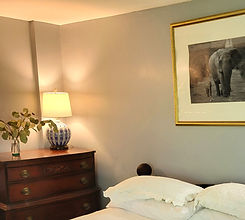WHAT ARE THE BEST PRACTICES FOR A SOBER LIVING?
Sober living is more than a place—it's a framework for recovery built on clarity, structure, and both professional and peer support. The best practices for sober living standards, as defined by NARR and NIDA, emphasize ethical care, peer connection, and evidence-based approaches that protect dignity and promote healing.

THE STANDARDS HAVE BEEN CODIFIED BY NARR
The National Alliance for Recovery Residences (NARR) emphasizes best practices for sober living that include providing safe, alcohol- and drug-free community-oriented homes where residents practice skills vital for sustaining recovery. Their standards are built on a social model approach that fosters peer support, shared responsibility, and structured environments tailored to different levels of recovery needs. Key elements include ethical care, resident empowerment, house rules with peer accountability, life skills development, and a culture of respect and belonging.
The National Institute on Drug Abuse (NIDA) highlights that effective sober living environments support recovery by promoting stability, accountability, and engagement in ongoing treatment and peer support. They stress the importance of managing addiction as a chronic condition, using evidence-based behavioral therapies, relapse prevention strategies, and tailored support for individual needs. Structured sober living homes act as a bridge from treatment to independent living, reinforcing routines, community connection, and relapse prevention.
Together, NARR and NIDA best practices underscore sober living as a supportive, structured, and peer-driven environment that integrates ethical standards, recovery skills, and clinical insights to promote long-term sobriety and wellness.

Core Environment Zero-Tolerance Policy enforced with regular, random drug and alcohol testing (Urine and/or EtG).Ensures a safe, sober environment, reducing temptation and relapse risk.
Zero Tolerance




Purposeful Activities
Reintegration Focus-Requirement for Purposeful Activity (Employment, schooling, or active volunteer work for 30-40+ hours/week).Promotes independence, self-sufficiency, and a new sense of identity.











